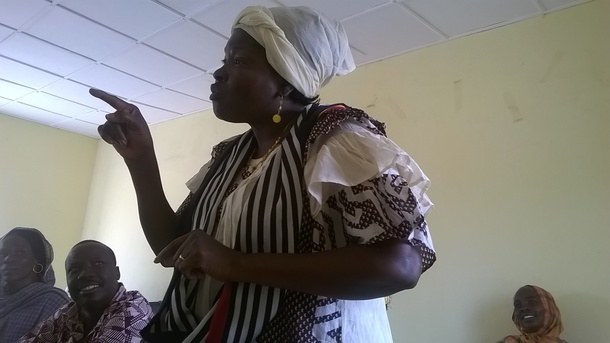This blog is written by Lenneke Kono-Tange, Programme Officer Africa, Business Unit Extractives at Cordaid, and was originally posted on the Cordaid website.
Ten years ago no average citizen had an idea about the public budget in Chad, due to the work of our partner organization GRAMPTC, this situation has changed.
For the past ten years, Cordaid has worked with GRAMPTC, which is also the host organisation for PWYP Chad. Originally, they only focused on oil-monitoring but gradually expanded to also involve participatory budget-monitoring. The main steps taken were to 1) inform communities on what a budget is and its purpose 2) raise awareness about the importance of monitoring 3) establish local budget-monitoring committees 4) support and follow-up effective monitoring.
During a field visit in February/March 2015, the fourteen local budget-monitoring that have already been created over the period 2006-2014, came together for the first time. The aim was to share experiences, learn from each other and start thinking how to join forces in a network. It was a very rich gathering, where it became clear a lot of initiatives were taken on the ground and the budget committees effective functioning.
With a lot of dedication, testimonials where shared, and lessons learned discussed. Everybody agreed that budget-monitoring is essential to achieve sustainable local development. Before, many projects were not carried out or money disappeared in ‘someone’s pocket’, leaving local population disadvantaged. This could simply happen because citizens were not even aware of planned projects and did not hold the government and enterprises accountable. “Now”, as one participants explains, “it is not possible anymore that an enterprise gets away when delivering bad quality work, without being interpellated by the committee. We have booked several successes in pushing enterprises to retake or adapt their work, always in collaboration with local authorities and local population. In this way projects – mainly roads, health centers, water facilities and schools, really benefit to the locality.”
But their work is not without risks and requires perseverance. One committee member, Abdoulaye Mamout from Finga, explains that their efforts to end the violation of the contract of an enterprise exploiting a stone-pit, made them end up in jail. Luckily, because of established contacts with the local media, they were released after some days. This shows the high interests at stake, “enterprises often only think of their benefit and ignore community rights and needs, causing negative impacts instead of development.”
One of the many female committee members, Djimet Catherine from Logone Occidental, grasped the rationale behind budget-monitoring very witty by saying “Our money is our responsibility!” In other words, it is our duty to track how public budgets are spent. The next step is to actually have influence on budget allocation and assuring community priorities are taken into account. In one of the localities, they already achieved in doing this, by elaborating a local development plan with input from the local population. This is a practice to be encouraged!
At the end of the two-day meeting, issues to be addressed by common advocacy actions were identified. In this way, the successes on the local level can be brought to the national level. There is still a lot of work to do as it comes to putting appropriate regulations in place, their compliance and effective community involvement in decision-making. GRAMPTC will continue its work in this area and strives to establish three new budget committees in the coming two years and strengthen to network to have even more positive impact for communities. The current project will be prolonged until April 2016 2016 – financially supported by CCFD and AFD while Cordaid continues its support through technical assistance.









